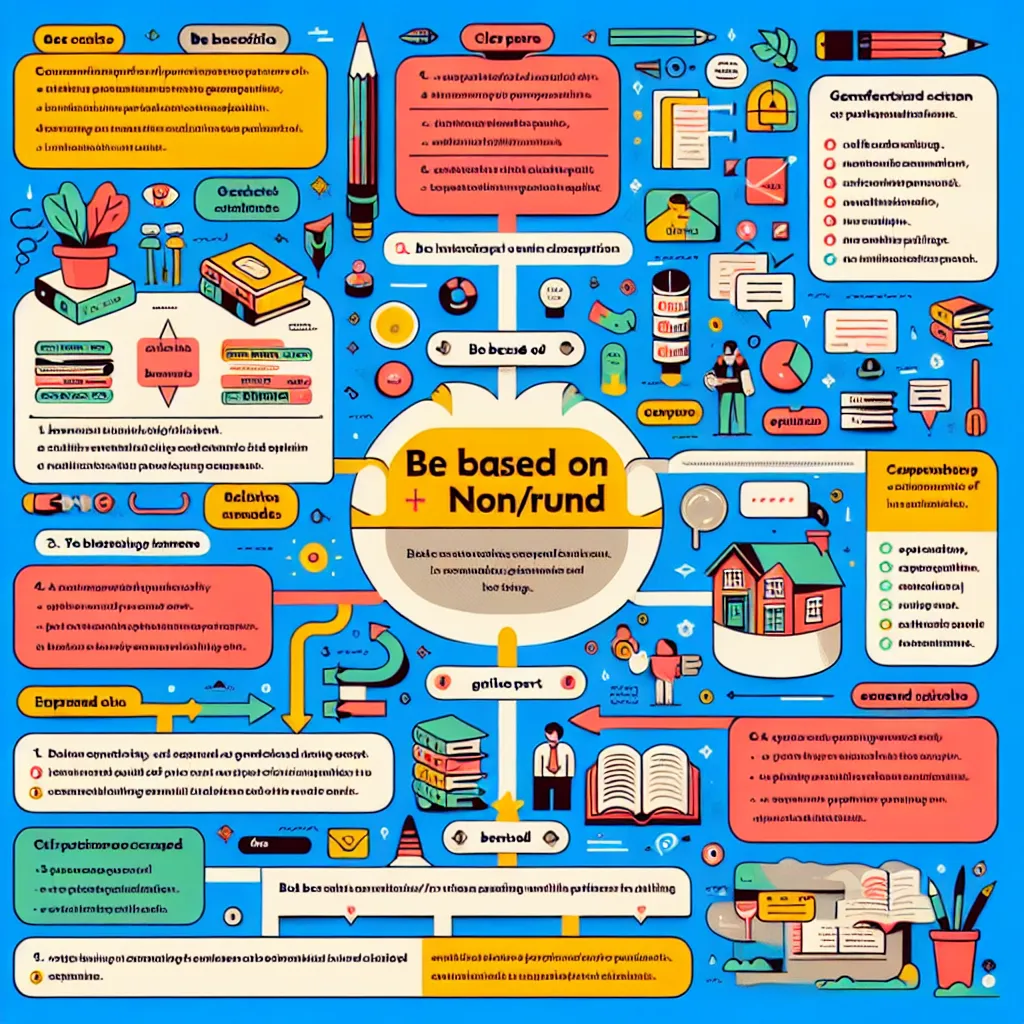In IELTS writing and speaking tasks, using advanced grammatical structures like “be based on + noun/gerund” can significantly enhance your score. This structure is commonly used to express the foundation or basis of something, making it a valuable tool for discussing various topics in the exam.
Understanding the “Be Based On + Noun/Gerund” Structure
The structure “be based on + noun/gerund” is used to indicate that something has its foundation in or derives from a particular source. It’s a versatile phrase that appears frequently in academic and professional contexts, making it particularly relevant for IELTS candidates.
Formula:
Subject + be (conjugated) + based on + noun/gerund
Let’s examine some examples to better understand its usage:
- “The research is based on extensive field studies.”
- “Their conclusions were based on analyzing large datasets.”
- “The company’s strategy is based on increasing market share.”
- “The film is based on a true story.”
- “His argument was based on misinterpreting the data.”
In each of these sentences, the structure clearly shows the foundation or source of the subject.

Applying “Be Based On” in IELTS Writing
Task 1 (Academic)
In IELTS Academic Task 1, you might need to describe data or processes. The “be based on” structure can be useful for explaining the sources of information or the foundations of certain trends.
Example:
“The graph shows that consumer spending patterns are based on income levels. Higher-income groups tend to allocate more of their budget to luxury items, while lower-income groups’ spending is primarily based on essential needs.”
Task 2 (Academic and General Training)
For Task 2 essays, this structure can help you present arguments and discuss the basis of various phenomena or policies.
Example:
“Many educational policies are based on outdated models of learning. A more effective approach would be to develop curricula based on recent neuroscientific research about how the brain processes and retains information.”
Enhancing Your IELTS Speaking with “Be Based On”
In the speaking test, using this structure can demonstrate your ability to express complex ideas clearly.
Example response to a question about career choices:
“My career choice is based on my passion for technology and its potential to solve global problems. I believe that innovations in AI and machine learning are based on our understanding of human cognition, which fascinates me.”
Common Mistakes and How to Avoid Them
-
Incorrect verb form:
- Incorrect: “The theory base on experimental results.”
- Correct: “The theory is based on experimental results.”
-
Using “of” instead of “on”:
- Incorrect: “The decision was based of insufficient data.”
- Correct: “The decision was based on insufficient data.”
-
Confusing with similar phrases:
- Incorrect: “The company is depended on foreign imports.”
- Correct: “The company is dependent on foreign imports.” OR “The company’s success is based on foreign imports.”
Elevating Your IELTS Score with Advanced Usage
To aim for higher band scores (7+), consider these advanced applications:
-
Combine with other structures:
“The government’s approach, which is based on extensive public consultation, aims to address the root causes of urban poverty.” -
Use in complex sentences:
“While the initial hypothesis was based on limited data, subsequent research has revealed that the phenomenon is more complex than originally thought.” -
Incorporate into idiomatic expressions:
“The success of the project is based on more than just numbers; it’s about thinking outside the box and pushing boundaries.”
Conclusion
Mastering the “be based on + noun/gerund” structure can significantly enhance your IELTS performance. It allows you to express complex relationships and foundations clearly and concisely. Practice incorporating this structure into your writing and speaking to demonstrate a high level of English proficiency. Remember to use it naturally and in context, avoiding overuse or forced applications.
To further improve your skills, try creating sentences using this structure about topics like environmental policies, technological advancements, or cultural changes. This practice will help you become more comfortable with the structure and prepare you for a wide range of potential IELTS questions.